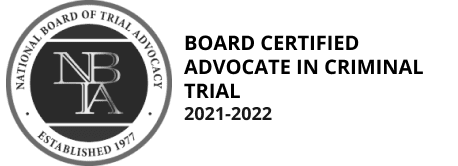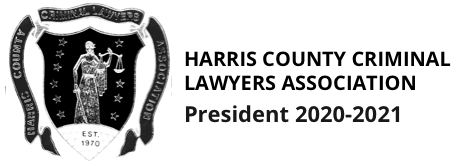DWI second offenses in Texas require an experienced and aggressive defense
Facing a DWI second offense in Texas is even more serious than facing your first, and more often than not, it results in heavy fines, mandatory jail time, probation, and driver’s license suspension, as well as other far-reaching and potentially life-changing consequences.
Other than the steeper consequences for conviction, you can also expect much less compassion from the courts. Judges are not as likely to be sympathetic if you’ve already been convicted for DWI, which means you can’t count on their leniency. The higher stakes and more aggressive prosecution combine to make it even more essential that you hire the right attorney. One who knows how to take high-stakes DWI cases to court and win them.
Mark Thiessen is the only lawyer in America who is triple board certified in DWI,* meaning he is uniquely qualified to defend his clients in complex, high-stakes cases, and he’s here to answer your questions about second offense DWIs in Texas.
If you need representation after a DWI second offense in Texas, do yourself a favor and call Thiessen Law Firm at (713) 864-9000 for expert defense.
*Mark Thiessen’s board certifications include:
- Criminal Law by the Texas Board of Legal Specialization
- DUI Defense by the National College for DUI Defense as approved through the American Bar Association
- DUI Law by the DUI Defense Lawyers Association
- Board Certified Advocate in Criminal Trial Law by the National Board of Trial Advocacy Foundation
What happens when you get a second DWI in Texas?
The first thing that you have to worry about after being arrested for DWI in Texas is keeping your license. Once you have been arrested (not convicted) for DWI, you only have 15 days to save your license.
You can do this by requesting an Administrative License Revocation (ALR) hearing or having your attorney request an ALR hearing.
If this is your second DWI in Texas then you may already know how an ALR hearing works, but what you might not know is that if you don’t win, your revoked license period will likely be two years, instead of the 90 days for first offense DWIs in Texas.
Make sure you hire an attorney who knows how to win a revocation hearing if you plan on keeping your license, and your life, together during your DWI case.
How much does a second DWI cost in Texas?
Although the costs of a second DWI are far-reaching and hard to predict, the most common expenses after a second DWI include the following:
- A criminal fine of up to $4,000
- Three years of a $1,500 surcharge levied by the Texas Department of Transportation
- Court costs
- Costs associated with the suspension of your driver’s license and its reinstatement
- Higher auto insurance premiums
- SR-22 costs
- SCRAM device costs
- Intervention programs and community service fees
- Bail bonds
The true cost of being convicted for repeat DWI offenses, however, is often much larger than the monetary fines, no matter how steep. Although the cost of a DWI in Texas is certainly high without considering jail time and its impact on life opportunities, the monetary fallout often pales in comparison to the ripple effect of a conviction.
Repeat convictions for DWI in Texas will result in more jail time and secondary consequences, as well as increasing legal fees that contribute to the overall DWI cost.
Is a second DWI a felony in Texas?
Is a second DWI a felony in Texas? Not usually, but it depends on the circumstances. A second DWI in Texas is classified as a Class A misdemeanor, with a few exceptions. Your second DWI will be charged as a felony DWI in Texas if:
- You are arrested for DWI with a passenger under the age of 15.
- You are arrested for DWI after causing a non-lethal crash that contributes to the disfigurement or permanent injury of another. This is called intoxication assault.
- You are arrested for DWI after causing a crash that leads to the death of another party. This is called intoxication manslaughter.
DWI felony repetition in Texas occurs on third and fourth convictions for DWI, which are automatic felonies in Texas and carry prison sentences as long as 10 years with mandatory minimums that start at two years. Believe us when we say, you cannot afford multiple DWI convictions, so it’s best to have the best legal team by your side to get the best possible outcome.
How does DWI probation work in Texas?
According to the Texas probation rules for DWI, you will likely be facing a longer stint on DWI probation for a DWI in Texas second offense than you would for your first DWI in Texas. While the amount of time you will spend on probation depends entirely on your DWI offense and what your attorney can work out with the prosecutors, probation after a DWI generally lasts anywhere from six months to two years.
Slip-ups like failing a drug test, blowing any amount of alcohol into your ignition interlock device, missing a meeting with your probation officer or a DWI education class, or any of the other infinite ways to violate the conditions of your probation will likely result in jail time. You should attempt to bypass probation by avoiding conviction at all costs.
Is jail time mandatory for second DWI in Texas?
There is a mandatory three-day jail sentence for a second DWI in Texas, although average sentences for a second DWI in Texas can be anywhere from one month to two years if convicted. If any aggravating factors were present in your case and you were charged with a felony, those numbers only go up.
Under Texas Penal Code § 49.04, the Texas DWI statute, the punishments for DWI offenses in Texas are as follows:
| Offense | Charge | Fine | Jail Time |
| First-offense DWI | Class B misdemeanor | Up to $2,000 | 3 – 180 days |
| Second-offense DWI | Class A misdemeanor | Up to $4,000 | 30 days – 2 years |
| Subsequent DWI charges | Felony charge | Up to $10,000 | 2 – 10 years |
| First-time DWI w/ BAC 0.15% or higher | Class A misdemeanor | Up to $4,000 | Up to 1 year |
| First-time aggravated DWI w/ child passenger | State jail felony | Up to $10,000 | 180 days – 2 years |
| Aggravated DWI with prior conviction(s) | Third-degree felony | Up to $10,000 | 2 – 10 years |
| Intoxication Assault | Third-degree felony | Up to $10,000 | 2 – 10 years |
| Intoxication Manslaughter | Second-degree felony | Up to $10,000 | 2 – 20 years |
As you can see, a third or subsequent DWI in Texas is always automatically a felony and carries a prison sentence of anywhere from two to 10 years.
For a second DWI you can expect to spend anywhere from three days to two years in jail, which is why it is so essential to hire an attorney who can fight for your freedom and win, rather than pleading down and accepting a conviction that will stay on your record forever.














